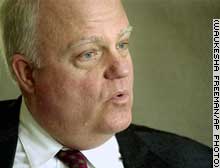
Response to the Arguments Against Net Neutrality
The telcos have two general complaints with a non-tiered, neutral network. They argue that the  improvement of infrastructure is costly and without proper compensation, results in major content providers not paying their fair share. They also argue that tiering is a natural step in the free market system and if anything, government regulation will only result in a greater market failure. While there is some truth to both these arguments, they do not hold up under higher scrutiny.
improvement of infrastructure is costly and without proper compensation, results in major content providers not paying their fair share. They also argue that tiering is a natural step in the free market system and if anything, government regulation will only result in a greater market failure. While there is some truth to both these arguments, they do not hold up under higher scrutiny.
The telecom companies often argue that large content providers such as Google were taking advantage of the network providers. A Washington Post article recently quoted Verizon senior vice president John Thorne accusing Google of receiving a “free lunch” (expanded quote at right) in which Google receives the benefit of faster service to the end user without paying more per bit. That line however is deceiving. It makes the reader think that Google pays a flat rate, much like end users, and sends as much data over the network as they want and that is simply not true. Google pays the network for exactly how much bandwidth they use. If they choose to use more bandwidth in April than they did in March, then they will have to pay more that month. Therefore, if the service becomes faster and they are able to send more data out than they previously could, it would result in a higher bill. Not only that, but the consumer pays the same people to access the information that Google paid so much to send out. To make content providers pay this extra fee would only result into costs trickling back to the consumer and in yet a third time the network providers are paid.
Still, even if the telcos are being paid multiple times, they argue that it is fair since it should be the market that decides how much they can charge and if the market allows tiering and it maximizes profits then it is a natural part of the economy. Again, this statement, although true, is misleading. The free market only works if there is ample competition. As studies show, 98 percent of American have two choices or less for broadband service, and is a situation as then House of Representatives Judiciary Committee chairman Jim Sensenbrenner calls “a virtual duopoly” that requires a “clear anti-trust remedy”.

Jim Sensenbrenner (R-WI)
Essentially what Sensenbrenner states is that prices, which would usually decrease in the face of competition between network providers, will remain high due to lack of competitors and the consumer will be the one to feel the brunt of this extra cost. Thus, without net neutrality legislation, consumers lose.